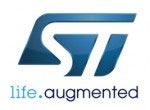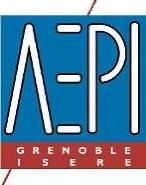"Topic Table" Lunch - Sponsored by Okmetic
Topics include:
MEMS in Healthcare Working Group Discussion
Lead moderator: Sam Bierstock, Champions in Healthcare
In September 2013, MIG kicked off the MEMS in Healthcare working group to address the opportunities and associated challenges on an industry-wide scale for MEMS and sensor devices in healthcare devices, including pharmaceutical, in-vitro diagnostics, medical devices, prevention and quality-of-life applications and medical home care. At the Congress, during this unconference we will discuss the key entry points for MEMS technology and the key application areas that will drive the growth of MEMS in the healthcare industry.
RF MEMS, a Solution for the LTE Advanced Standard Mobile challenges
Lead moderator: Guillaume d'Eyssautier, DELFMEMS
Mobile handsets must operate over an increasing number of frequency bands. For LTE-Advanced, RF architecture becomes more complex, more expensive and consumes more power. MMMB handset contains multiple RF Front End modules optimized for multiple frequency bands. This leads to component duplication and complex RF hardware. Until now, size reduction and increased functionality have been addressed by chip scaling. Now, passive RF components are the limiting factor for volumetric scaling. New solutions for increased RF hardware integration and performances are needed. For antenna switch , existing technologies are limited in linearity, isolation and insertion loss. As an alternative, RF MEMS provide enhanced technical electrical performances. Until now, cost, reliability and manufacturing yield issues have prevented RF MEMS from achieving commercial success but remain an attractive option given its superior attributes.
The discussion will be around how to overcome these challenges to make RF MEMS a success story
Standardized Sensor API Update
Lead moderator: Ken Foust, Intel Corporation
Co-moderator: Michael Gaitan PhD RYT, National Institute of Standards and Technology
Given explosive adoption of sensor technologies in the consumer electronics industry, and the variety of sensor types, vendors, and integration considerations, it is acknowledged that OEM’s, ISVs and other platform providers are faced with a non-scalable integration challenge. Therefore, it is imperative that we continue to drive intelligent, non-burdensome standardization into our ever-expanding industry. Working with MIG and leading sensor vendors, Qualcomm and Intel took the first step in 2012 by developing the Standardized Sensor Performance Parameter Definitions for the consumer-focused sensor industry. However, this effort is just one of many potential collaborations across the industry.
Specifically, this table discussion will engage MIG members in the following standardization topics:
- A brief status of standardization efforts across the industry, including an update on the MIPI Alliance's Sensor group
- An Introduction to a new standard for a basic sensor driver API - Standardized Sensor API Rev 0.7
MEMS Business Processes: A Discussion of the Evolution of the Technology Development Process (TDP) and MEMS Product Development
Lead moderator: Valerie Marty, Hewlett-Packard & Dirk Ortloff, Process Relations
Integrating MEMS technology innovations into successful products can be challenging. Join your industry colleagues in a conversation expanding on last year's MIG TDP Template and explore insightful development strategies and best practices. The moderators will prepare materials for distribution regarding various product development issues including; life cycle management, capabilities/risk analysis, and development execution systems. Generated interest will guide future MIG activities including possible expert panel discussions and/or a MIG working group. Bring your MEMS product development experiences and questions to help align expectations across the supply chain and accelerate commercialization success. And where better to enjoy the conversation, but in Napa.
New Sensor/Sensor Capability Addition Process with Microsoft Requirements
Lead moderator: Rajashree Baskaran, Intel Corporation
We would like to invite participants from MEMS/Sensor companies and other ecosystem partners to join the discussion on processes to offer additional physical sensors or new sensor capabilities from existing sensors in a fast and streamlined way in the windows metro environment across platforms. This team would capture the current process understanding and extension proposals/thoughts from various ecosystem partner perspectives to drive convergence.
TSensor Summit's Trillion Sensor Roadmap
Lead moderator: Dr. Janusz Bryzek, Fairchild Semiconductor
The recently held TSensors Summit at Stanford University focused on the sensor applications and sensor types that have the potential to fuel sensor market growth to trillions by 2023. The Trillion Sensor Roadmap topic table will discuss growth areas for MEMS and how to accelerate the development and commercialization of sensors in the coming decade.






















